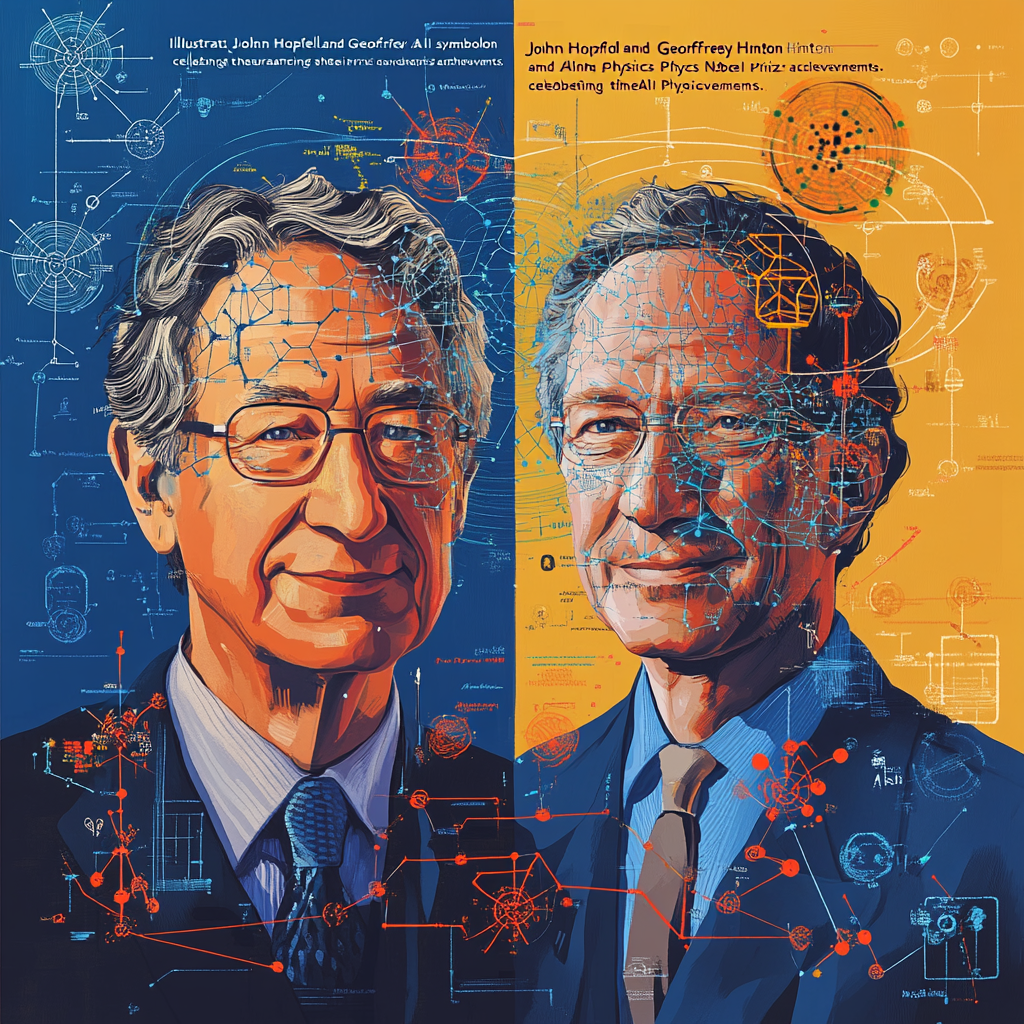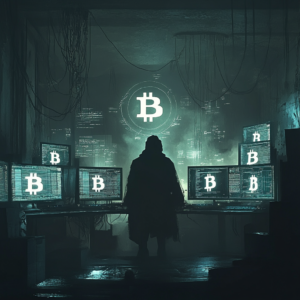
Revolutionary Advances in AI Earn Physics Nobel for Dynamic Duo
On an electrifying October morning in 2024, a seismic event rippled through the scientific community: the Royal Swedish Academy of Sciences declared the awarding of the Nobel Prize in Physics to two extraordinary luminaries in the realm of artificial intelligence (AI). Enter John Hopfield and Geoffrey Hinton, whose groundbreaking explorations into machine learning and neural networks have transformed the contours of modern existence.
Fancy spinning a yarn of genius? Well, strap in.
The Pioneers
John Hopfield at 91, must’ve marked the occasion with a wry smile—how fitting for a man whose theoretical legacies have been hustled and bustled into action across industries galore. A professor emeritus at Princeton University, he’s the brains behind an associative memory model that doesn’t just collect data; it reconstructs images and patterns with a flair that can only make lesser technologies quake in their boots. His work illuminated the murky waters of complex systems, breathing life into the notion that a swarm of simple parts can produce mind-blowing emergent properties. “When you get systems that are rich enough in complexity and size,” he mused, “they can have properties which you can’t possibly intuit from the elementary particles you put in there.” The man speaks physics like it’s poetry—and we’re here for it.
And who doesn’t have a soft spot for Geoffrey Hinton? Commonly dubbed the "godfather of AI," this 76-year-old intellectual maestro wielded the wand that turned abstract mathematical principles into capable neural networks that can army-issue themselves to discern elements in images, as if they were masterminds of camouflage. Operating from his throne at the University of Toronto, Hinton has nurtured the seeds of modern AI technologies that permeate everything from social media algorithms to robust diagnostic systems in healthcare. I mean, what can't this guy do?
The Impact of Their Work
Hopfield and Hinton, in a hilariously productive bout of collaboration back in the '80s, married physics and computer science, giving birth to a progeny we now call machine learning. The offspring is a torrential force in the realms of healthcare, engineering designs, and even your love affair with Netflix recommendations. Their innovations didn’t just push envelopes; they pretty much blew the damn package sky-high. What they devised set the stage for algorithms so powerful, they’re practically conjuring magic tricks in the lab and beyond.
The beauty of their work doesn’t stop at success rates. It ensures we’re not just surfing the wave of progress; we’re learning to ride it without wiping out. With big data being thrown around like confetti, these exploratory projects are vital. They’re the rickety bridge over a chasm of uncertainty in our algorithms. Am I sounding a bit hyperbolic? Sure, but what’s life without a little flair?
Concerns and Future Perspectives
Now, let’s pivot and get real. With great power comes an impressive stack of concerns. Hinton—who’s so thoughtfully abandoned his Googling position to amplify his voice—keeps echoing cautionary tales about the rapid rise of AI. “We have no experience of what it’s like to have things smarter than us,” he said, sounding more like the cold, awakening voice of reason than a cynical naysayer. Sure, the prospect of AI tackling complex healthcare inequalities is alluring, but let’s not ignore the ghosts lurking in the shadows. Hinton himself acknowledges the possibility of AI spiraling out of control, something that should make anyone with an ounce of foresight indulge in an anxious gulp.
Hopfield joins in with his fair share of trepidation, yearning for balance in a time where technologies can be as benevolent as they can be malevolent. “One is accustomed to having technologies which are not singularly only good or only bad,” he articulates, which is a polite way of saying: just because you can make a machine read Einstein, doesn’t mean you should rush into an AI revolution without a solid compass.
The Nobel Prize Ceremony
Shall we talk awards? Hopfield and Hinton will be gracing the stage to receive their well-deserved gold medals, diplomas, and a prize sum game-changing by any measure—eleven million Swedish crowns (just over a million dollars!). In a ceremony to be held in Stockholm on December 10, 2024, King Carl XVI Gustaf will adorn these breakthroughs with royal legitimacy. Picture it: a moment infused with history, knowledge, and the mingling scents of scientific evolution, drawing the likes of enthusiasts, skeptics, and rabid fans alike into a celebration of extraordinary accomplishments.
Conclusion
The crowning of Hopfield and Hinton not only shines a spotlight on their exceptional contributions but is a clarion call to all of us riding the wave of AI advancements to remain engaged, analytical, and cautious. Their stories serve as both a reminder and a manifesto, urging us to understand and amplify the fundamental research that is knitting the future of our society.
So, if you’re keen on keeping your finger on the pulse of AI, its wonders, and its pitfalls, do yourself a favor. Dive headfirst into the conversation. Your future self will thank you.
Want to stay up to date with the latest news on neural networks and automation? Subscribe to our Telegram channel: @channel_neirotoken.
Now go on, whirl in the excitement of discoveries that shape not just the machines around us, but the narrative of our very existence. I promise, it’s a ride worth taking!

